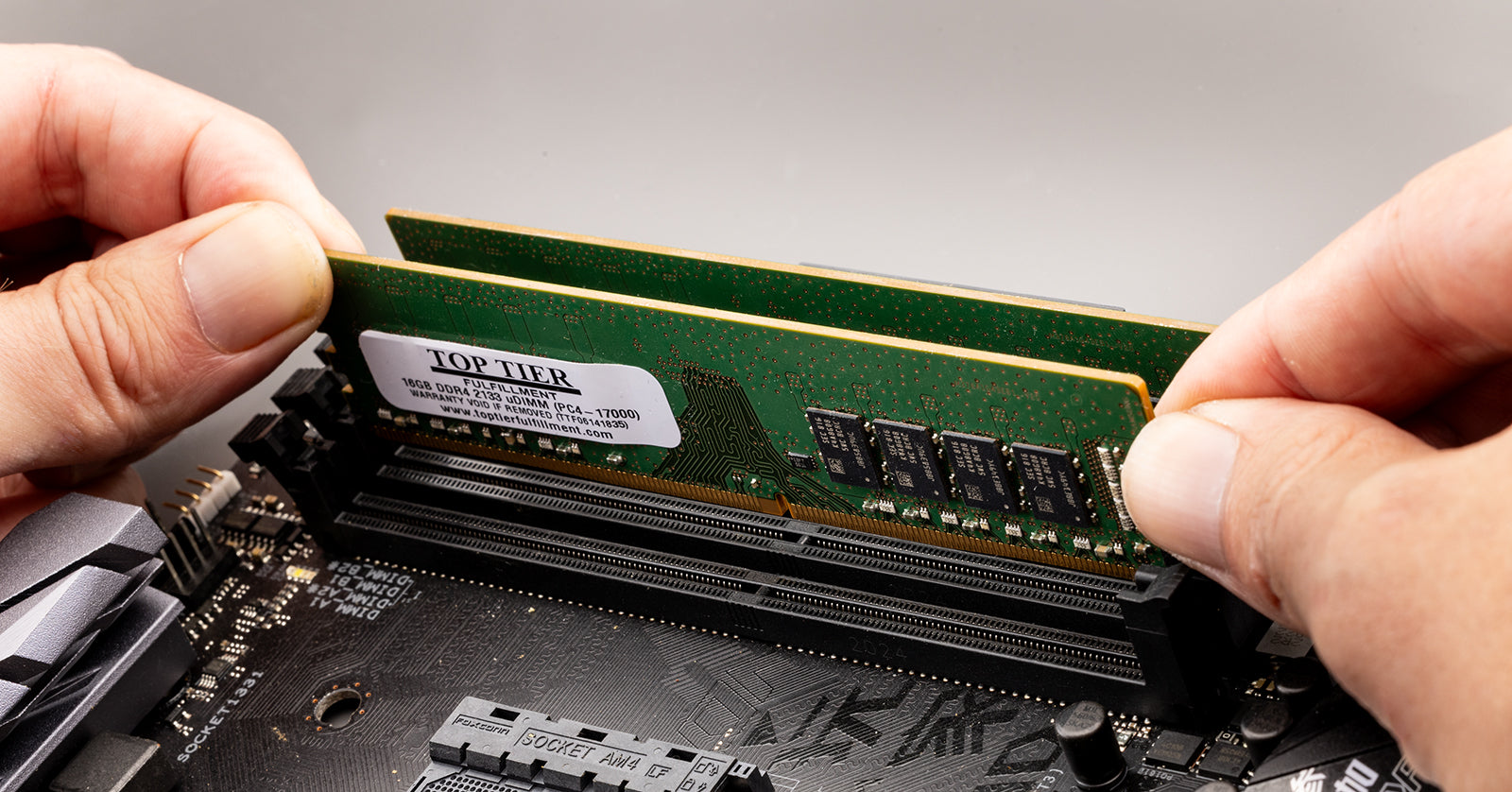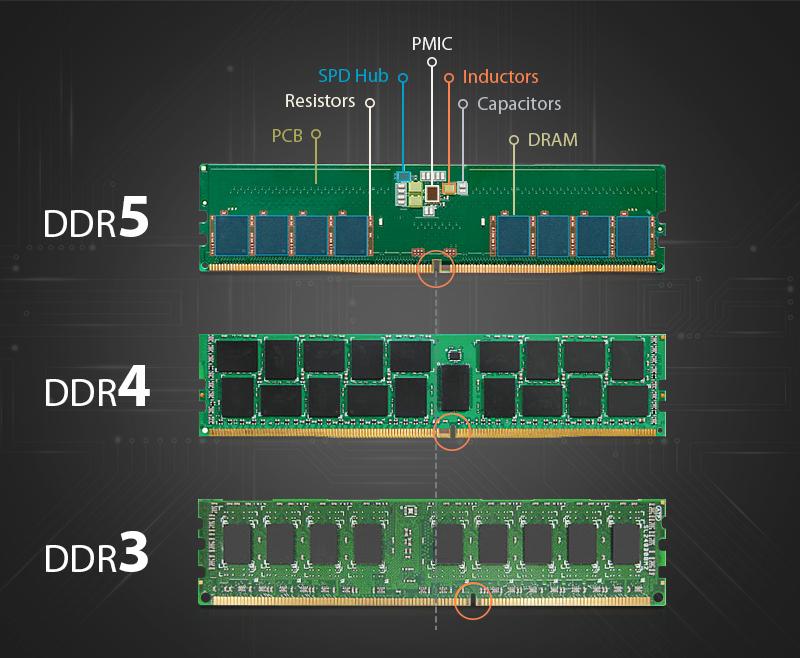Understanding RAM: The Heart of Your Computer's Speed
Building your own computer can be both exciting and challenging. To make the best decisions, you need to understand each component inside your PC. One of the most critical parts that directly influences how fast and smooth your computer runs is RAM (Random Access Memory).
→What is RAM?
RAM is a special type of high-speed memory your computer uses to temporarily store data that the CPU needs quick access to. Unlike your storage devices (HDD or SSD), RAM is volatile memory, meaning it only holds data while the computer is powered on. When you turn off your PC, everything in RAM is erased.
Think of RAM as your computer's short-term workspace where it handles active processes and data. The larger and faster your RAM, the more tasks your computer can manage simultaneously.
→Why is RAM Important?
- Multitasking: More RAM allows you to run multiple applications smoothly without slowing down your system.
- Gaming: Modern games require significant RAM to load textures, environments, and game logic in real-time.
- Content Creation: Video editing, 3D rendering, and graphic design benefit greatly from larger, faster RAM.
- Speed: RAM speed affects how fast data is sent to the CPU, impacting overall system responsiveness.
→How Does RAM Work?
RAM is made of tiny memory cells arranged in a grid of rows and columns. Each cell stores a bit of data — either a 0 or a 1. The CPU can read or write data from any cell directly and almost instantly, which is why RAM is much faster than storage devices.
When you open an application, the data needed is loaded from your hard drive or SSD into the RAM, so the CPU can access it quickly. If there isn’t enough RAM, your system uses a slower storage area called virtual memory, which can drastically reduce performance.
→Types of RAM
RAM has evolved over time, and choosing the right type depends on your motherboard and CPU. Here's a detailed look at the most common types:
| Feature | DDR3 | DDR4 | DDR5 |
|---|---|---|---|
| Introduction Year | 2007 | 2014 | 2020 |
| Voltage | 1.5V (can be 1.35V low-voltage) | 1.2V | 1.1V |
| Speed (MHz) | 400 – 2133 | 1600 – 3200 (commonly up to 3600+ MHz) | 3200 – 8400+ MHz (still evolving) |
| Latency (CAS) | 7–11 | 15–19 | 40–50 (higher but compensated by speed) |
| Max Module Capacity | 8GB – 16GB | 16GB – 64GB | 32GB – 128GB (projected higher) |
| Bandwidth | Up to ~17 GB/s | Up to ~25.6 GB/s | Up to ~51.2 GB/s+ |
1. DDR3
Once the industry standard, DDR3 is mostly phased out in new systems but can still be found in older PCs. It’s slower and uses more power compared to newer types.
2. DDR4
The most common type today, DDR4 offers better power efficiency and faster speeds. It supports larger capacities, making it ideal for gaming rigs and professional setups.
3. DDR5
The newest generation, DDR5, brings even faster speeds, higher bandwidth, and improved power efficiency. It is just becoming mainstream in the latest CPUs and motherboards, so it’s the future-proof choice for high-end builds.
→How to Choose RAM for Your Build
Choosing RAM isn’t just about capacity; you must consider compatibility and performance:
- Compatibility: Check your motherboard and CPU specs to know what RAM type and speed they support.
- Capacity: 8GB is the minimum for smooth everyday use; 16GB or more is recommended for gaming and productivity; 32GB+ suits professional video editing or 3D work.
- Speed: Higher MHz can improve performance but gains diminish after a point. Balance speed and cost.
- Latency: Lower CAS latency means faster access but can be more expensive.
- Dual/Quad Channel: Install RAM in pairs or kits to enable dual or quad-channel mode, which doubles or quadruples the memory bandwidth.
→Tips for Installing RAM
- Always install RAM sticks in the slots recommended by your motherboard manual to enable dual/quad-channel.
- Mixing different brands or speeds is possible but not recommended; it may cause instability or slower speeds.
- Use quality brands like Corsair, Kingston, G.Skill, Crucial, or Samsung for reliability.
→Video: DDR3 vs DDR4 vs DDR5 RAM Differences
- Building your own computer is an exciting journey. Understanding RAM will help you choose the right memory for your build, ensuring your PC is fast, efficient, and future-proof.




No comments:
Post a Comment